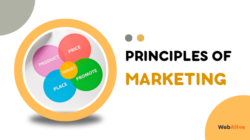
Why Local SEO is Important for Local Businesses?
In 2013, search engines are the most popular means of finding information about goods and services, so they are naturally the foundation on which many marketing strategies are built. The statistics indicate that the prevalence of search has continued to grow; people looking for local businesses are using search engines more than ever before.
In the 80’s and 90’s, small and medium-sized businesses would simply run an ad in the Yellow Pages and that would be the predominant form of formal marketing they’d engage in. The statistics indicate that while people do still use the Yellow Pages in its printed form, usage has declined over the past decade or more.
A 2011 study conducted by market research company Burke reported that 49% of respondents had used print Yellow Pages in the past month to find local businesses, while 67% had used online search engines. Once the go-to method of finding services, the Yellow Pages has now developed an online presence to supplement its print directory.
In the computer age, we are flooded with a huge number of marketing messages every day. With so many people online, businesses now have an extremely efficient means to communicate their message and they are able to expose their brand to a far greater number of people.
There are various ways for a business to reach their target market online including email and social media marketing. But it’s clear that search is the new Yellow Pages; some would even go as far to suggest that it has the greatest persuasive power of any factor in influencing purchase decisions.
That’s not to say that other more traditional methods of marketing aren’t still effective. Cultivating referrals, advertising in print and media, and community involvement can be crucial in generating leads and interest. But given the number of people using search engines every day, businesses need to strongly consider utilising search engine marketing to drive enquiries.
How many people use search?
According to a 2011 study, about 59% of internet users are jumping on search engines every day.
Google, currently the most popular search engine by a considerable margin, processes roughly 100 billion queries every month. Of course, the wide majority of users are not necessarily searching for goods and services every time they use Google, Yahoo or Bing. Search queries can be categorised into the following:
Informational
The most common kind of query in a search engine, informational searches come from users looking for info about certain topics. They have no particular website in mind; they just want to find out about something as quickly as possible. Generally, users find their information within the first few search results. Wikipedia – now one of the world’s top 5 websites – has settled many an informational query in its time and hence ranks highly for a large number of these searches.
Navigational
This type of search query occurs when a user is looking for a specific website and uses a search engine to find it. An example might be searching for ‘carsales’, ‘youtube’ or ‘nike’. The user knows what website they’re looking for, but they might not be completely sure about the URL. In some cases, what seems to be a navigational query might actually be an informational query – a user might be looking for information about a brand that they are searching for.
Transactional
Transactional search queries are obviously of the most interest to marketers. These are searches that demonstrate intent on the part of the user to purchase a product or inquire about a service, and they vary in terms of the specificity of the search query. For instance, using a long-tail keyword in a search such as ‘stainless steel custom grill grates’ suggests that the user is very close to making the purchase.
In contrast, a more generic search such as ‘buy barbeque’ may indicate that the user is still gathering information and weighing up their options. Further, users are far more likely to look beyond the first page for transactional searches than they are for informational searches.
Being found for transactional search queries
With the huge influence that search engine result pages (SERPs) have on the purchasing decisions of consumers, businesses are in constant competition to secure top rankings for popular search queries relevant to their service.
What is important is not only that the website listing is seen by the searcher, but also that they are curious enough to click through to the website, and potentially submit an enquiry/make a purchase.
Search Engine Optimisation and Pay per Click advertising are the methods by which a website can acquire traffic from search engines. Obviously, coming up for as many high volume search queries as possible means greater levels of traffic, however targeting specific niche keywords can also be effective. As discussed earlier, ranking for long tail keywords often means catching a consumer when they’re ready to buy.
The fact is that paid advertisements are going to be the first thing consumers notice as they take up the most valuable space in the SERP. A recent study found that transactional or commercially-relevant search queries result in paid ads being clicked two times as often as organic listings. There are, however, other advantages that come with optimising a website and link building for organic ranks including the referrals from other websites it creates.
It’s often wise to combine search engine optimisation and Pay per Click advertising to generate the optimal level of targeted traffic and ensure a business is found in search engines.
You read a lot. We like that
Want to take your online business to the next level? Get the tips and insights that matter.

